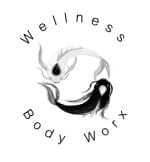"Redefining Strength: How Functional Exercise Trumps Traditional Weight Lifting for Longevity and Health"
"Understanding Functional Exercise: A New Approach to Strength Training"
You've always wanted to build strength. You've scoured the internet, tried different workouts, and maybe even invested in some expensive gym equipment. But the traditional weightlifting routines just aren't cutting it. They leave you feeling disconnected and unbalanced, and you just can't shake off the nagging feeling that you're not maximizing your strength training potential.
This is the moment to consider a different perspective: functional exercise. This new approach to strength training not only increases your strength but also enhances your ability to handle everyday tasks effectively and safely. Functional exercise isn't about isolating muscle groups like traditional weightlifting - it's about engaging multiple muscle groups simultaneously, replicating the movements you'd use in real-life scenarios.
It's time to dive deeper into the world of functional exercise and discover how it could be the key to the holistic strength training regimen you've been seeking. In the following sections, we will explore the benefits of functional exercise, the limitations of traditional weight lifting routines, and how each impacts athlete longevity and drug and supplement use.
Limitations of Traditional Weight Lifting Regimens: A Closer Look
The Pitfalls of Isolation
Weight lifting, in its traditional form, often focuses on isolating and targeting specific muscle groups. You hoist heavy weights, repeat the movements, and, over time, see your muscles grow and get stronger. This approach, however, may not always be the best for your overall physical health. Isolating muscle groups can lead to imbalances, as some muscles become disproportionately stronger than others. Overuse or strain from lifting heavy weights can also result in injuries, potentially sidelining your fitness goals.
Beyond the Gym: Functional Fitness
While lifting heavy is great and can give you that much-coveted "gym body", it may not translate well into functional strength needed to perform everyday tasks. Have you ever found it surprisingly difficult to carry heavy shopping bags or lift a bulky suitcase, despite spending hours every week at the gym? This is because weight lifting regimens often don't address the functional movements we use in our daily life. This could limit your overall functionality and potentially increase your risk of injury outside the gym.
Injury Risks and Longevity
Another important aspect to consider about traditional weight lifting routines is the potential impact on your longevity. While it’s true that lifting weights can improve physical performance and even contribute to a longer life, improper or excessive weight lifting can lead to injuries. These injuries not only put a damper on your fitness journey but can also reduce your active lifespan. It’s crucial to strike a balance between pushing your limits and prioritizing recovery and injury prevention.
The Importance of a Balanced Approach
Traditional weight lifting is not inherently bad; in fact, implemented correctly, it can be a crucial component of a strength training program. The key lies in finding a balanced approach. Incorporate elements of functional training into your regimen, focus on core strength, and prioritize mobility and flexibility. And most importantly, listen to your body. It's the only one you've got, and it deserves to be treated with respect.
Longevity in Sports: The Role of Exercise Type
In the world of fitness, the correlation between exercise type and longevity in sports triggers endless debates. The assertion that functional exercise fosters longevity in athletes while traditional weight lifting regimens don't, offers an intriguing perspective. But is this claim accurate? Let's explore this concept further.
Longevity and Functional Exercise:The holistic approach of functional exercise is known for improving the body's overall functionality, making it a desirable choice for enhancing sports longevity. It doesn't just target isolated muscle groups but focuses on engaging multiple muscle groups simultaneously, replicating movements we use in our everyday life. This can lead to better muscle coordination, stability, and mobility - all essential components for a prolonged sports career. Yet, it's critical to remember that longevity in sports cannot be solely attributed to the type of exercise. Factors such as genetics, nutrition, and lifestyle also play a significant role.
Weight Lifting's Contribution to Longevity: Traditional weight lifting regimens, often accused of not promoting longevity, are indeed a fundamental part of many athletes' training programs. These regimens are designed to build the strength, power, and explosive movements needed in various sports. When implemented correctly, weight lifting can contribute to better muscular endurance, improved bone density, and enhanced overall physical performance. However, the caveat here is finding the right balance between strength training and adequate rest periods to prevent injuries and ensure longevity.
A Balanced Approach: It's important to realize that neither functional exercise nor traditional weight lifting regimens are a 'magic pill' guaranteeing longevity in sports. While functional exercise may provide a broader range of benefits in terms of overall functionality and injury prevention, weight lifting also offers valuable benefits when done correctly and responsibly. The key lies in adopting a balanced approach that considers your individual goals, employs the proper technique, and allows for sufficient recovery time.
In conclusion, both functional exercise and weight lifting have their unique merits and challenges. Longevity in sports is not exclusively determined by the type of exercise but is influenced by a combination of factors. Irrespective of the chosen exercise modality, a balanced, well-rounded approach to training is likely to yield the best results for long-term athletic performance.
Unraveling the Connection Between Weight Lifting and Drug/Supplement Use
The stigma that weight lifting naturally leads to the use of performance-enhancing drugs (PEDs) and supplements is a complicated and multi-faceted issue. Let's unpack this, shall we?
1. Understanding the Pressure: One important factor to consider is the immense pressure athletes often face. Whether it's to break records, achieve personal bests, or simply keep up with the competition, the drive to excel can be intense. This pressure, though not exclusive to weight lifting, can sometimes lead individuals towards PEDs.
2. Not All Supplements Are Bad: It's also crucial to remember that not all supplements are harmful or illegal. Many athletes, regardless of their exercise modality, use legal and safe supplements to aid recovery, improve performance, and ensure they’re getting the nutrients their bodies need.
3. The Role of Ethics:The use of PEDs isn’t just an issue in weight lifting—it’s a problem that transcends any one sport or exercise regimen. It’s a matter of ethics and personal integrity. From cycling to baseball, no sport is immune to unethical conduct. The responsibility lies with athletes, coaches, and sporting bodies to uphold principles of fair play.
4. A Word of Caution: It's important to acknowledge that improper use of supplements and PEDs pose serious health risks. Always consult with a healthcare professional before starting any new supplement regimen.
So, does weight lifting inevitably lead to drug and supplement use? The answer isn’t as simple as a yes or no. It’s a complex issue that involves the interplay of intense pressures, ethical considerations, and overall health concerns. It’s essential that we navigate this space with accurate information, understanding, and a commitment to health and fair play.
"Functional Exercise vs. Weight Lifting: A Balanced Perspective"
In conclusion, both functional exercise and weight lifting have their unique set of benefits and drawbacks. However, it's important to remember that exercise and fitness aren't a one-size-fits-all proposition. The best type of exercise for you largely depends on your fitness goals, body type, and general health.
If you're looking for strength, longevity, and overall health, functional exercises might be the right fit for you. They mimic real-life movements, engage multiple muscle groups, and improve balance, coordination, and flexibility. These exercises not only build strength but also equip your body to handle everyday activities more effectively, reducing the likelihood of injuries.
On the other hand, weight lifting can still be a part of your fitness regimen as it is excellent for muscle building and bone density. However, it's crucial to resist falling into the trap of over-reliance on supplements and performance-enhancing drugs, which may deliver short-term results but at the cost of your long-term health and well-being.
striking a balance between functional exercise and weight lifting, while maintaining a healthy lifestyle and diet, will pave the way for better strength, longevity, and overall fitness. Always remember, your health should never be compromised for the sake of reaching aesthetic or performance goals.


Recent post